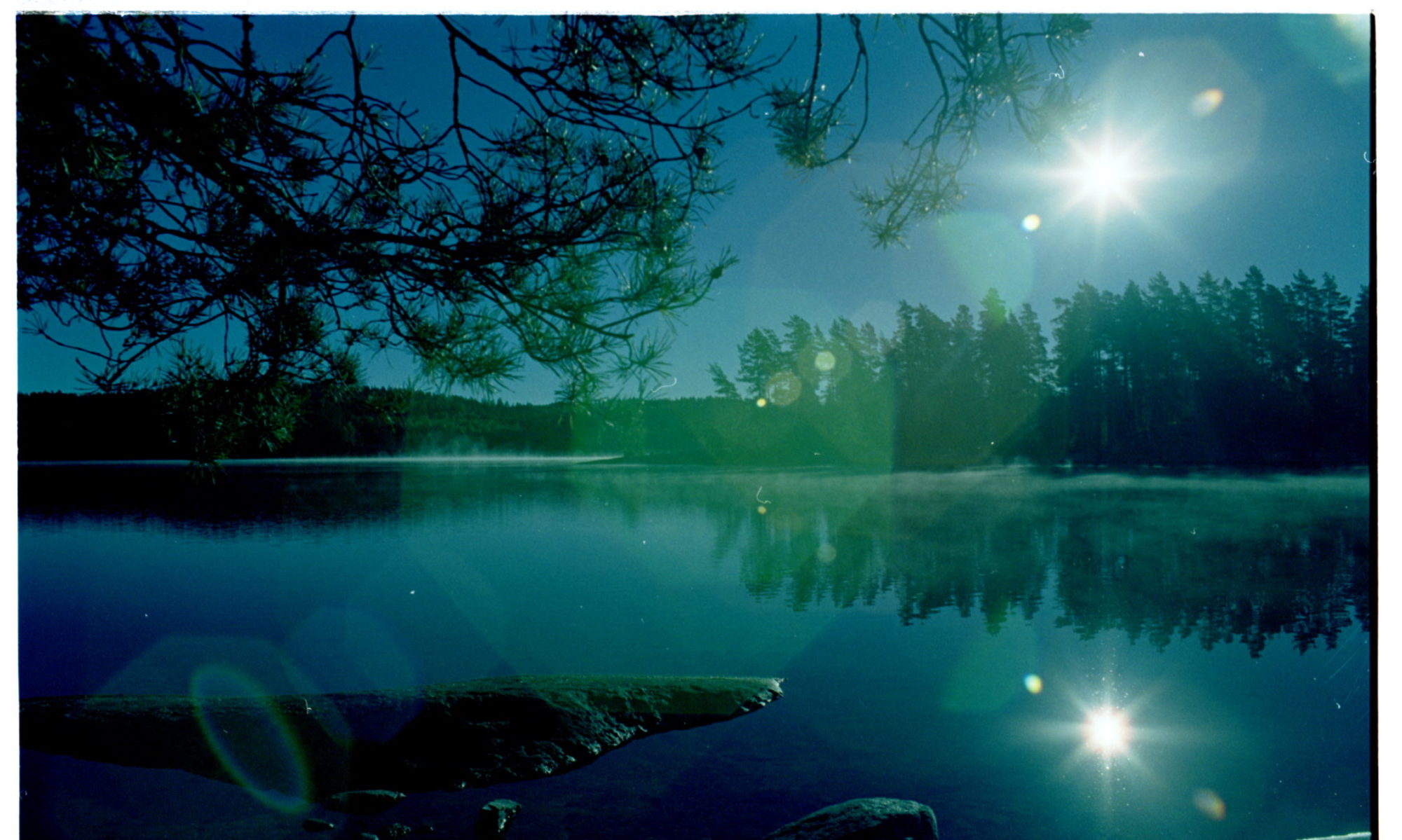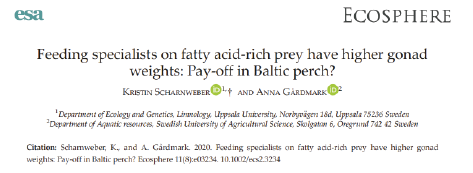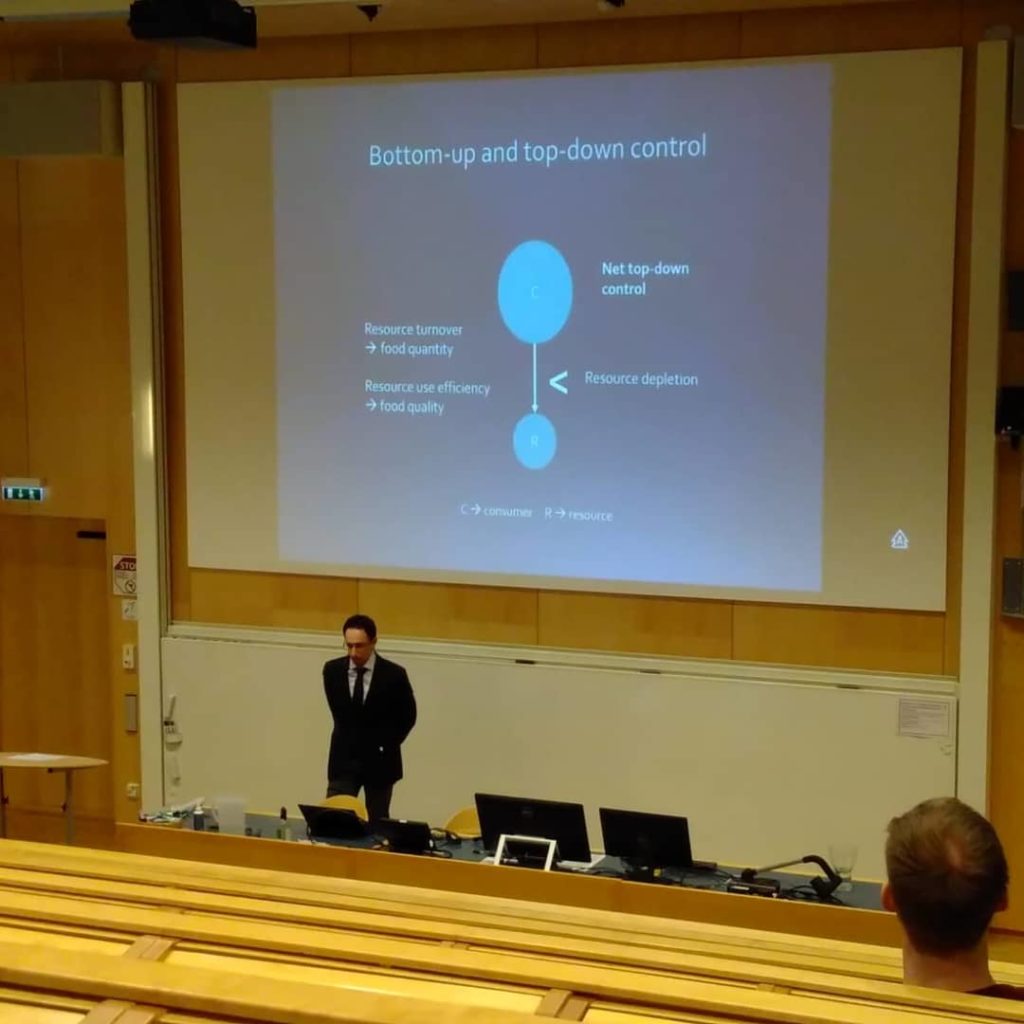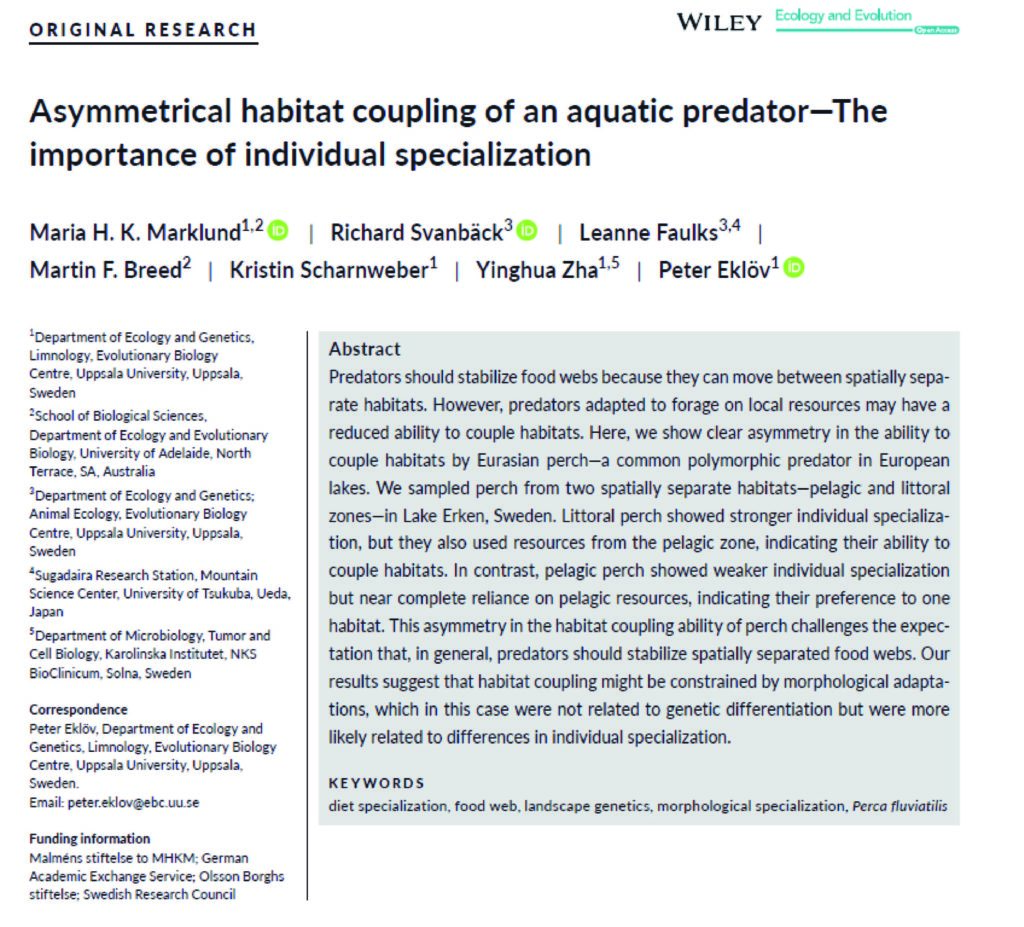Congratulations to Robyn and Erik who successfully defended their Master’s theses!
Robyn´s
thesis has the title “The effect of different browning agents on the fitness
and survival of Daphnia magna”. Robyn picked up on the findings of decreased
zooplankton abundances of the first KAWater mesocosm experiments in 2016 in
treatments with HuminFeed and conducted standardized OECD toxicity tests on lab
cultures of Daphnia. Her results show a clear reduction in offspring numbers
when Daphnia is cultured in HuminFeed, highlighting that this browning agents
should only be used with greatest caution in future browning-related experiments.
For his thesis
“Effects of productivity and predation on zooplankton and emerging chironomids
in a mesocosm experiment”, Erik has collected zooplankton and emerging
Chironomidae from the mesocosm experiment conducted in summer 2017. Therefore,
he did an excellent handcraft-job by building the emergence traps that we also
could further use in the next season. In his thesis, he found interesting
interactions between bottom-up and top-down effects where nutrients can
mitigate the effects of predation pressure.








